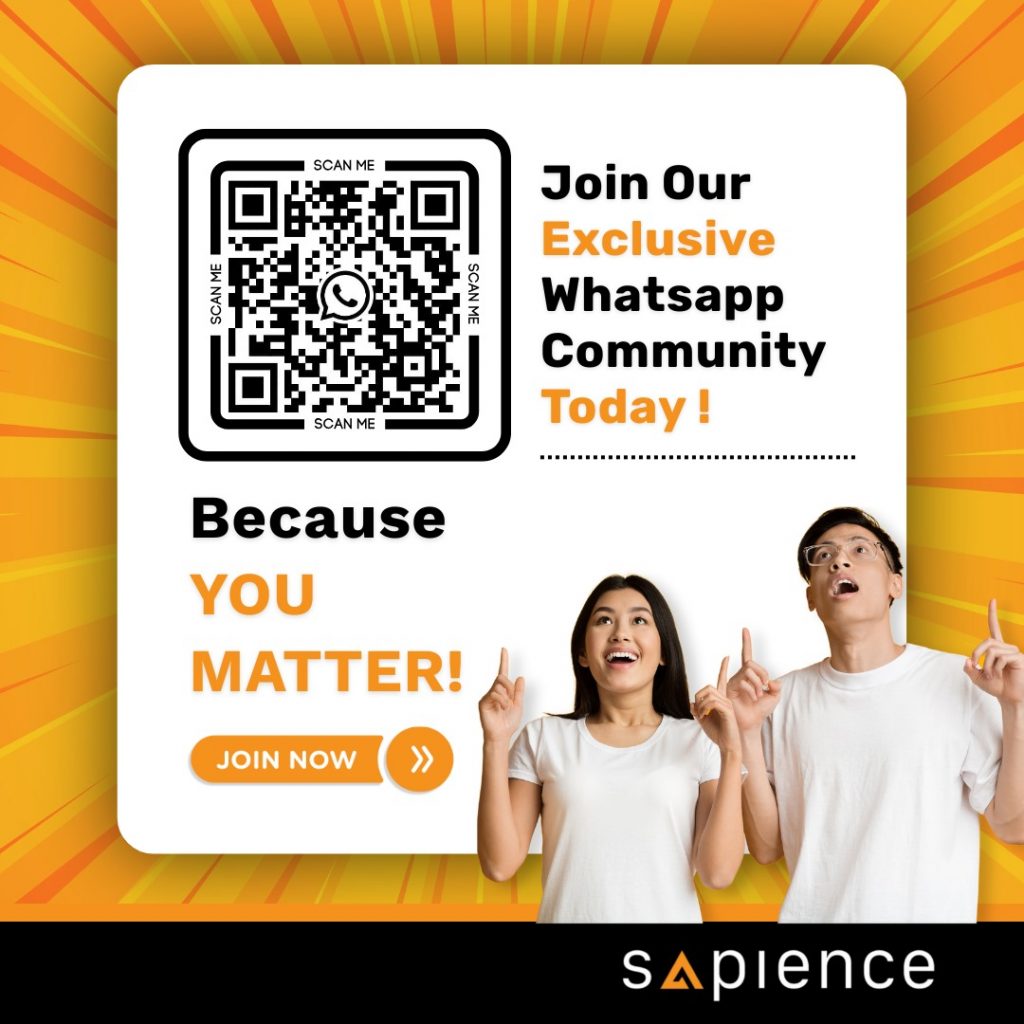ITIL®4 Specialist: Business Relationship Management
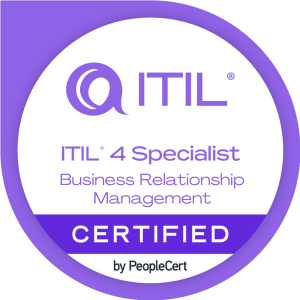
Unlocking Service Relationship Success
Establishing and nurturing relationships between service providers and their stakeholders
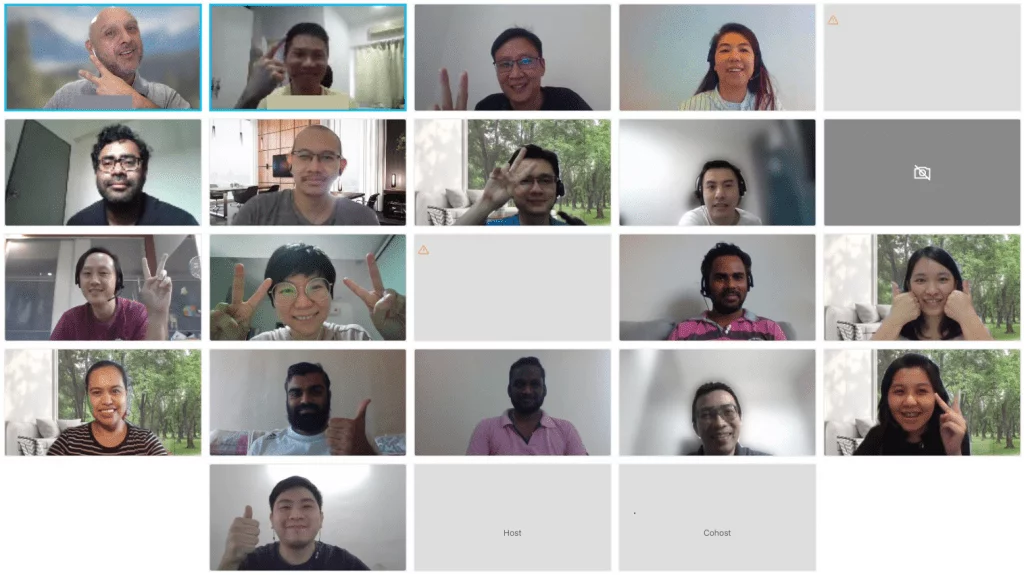
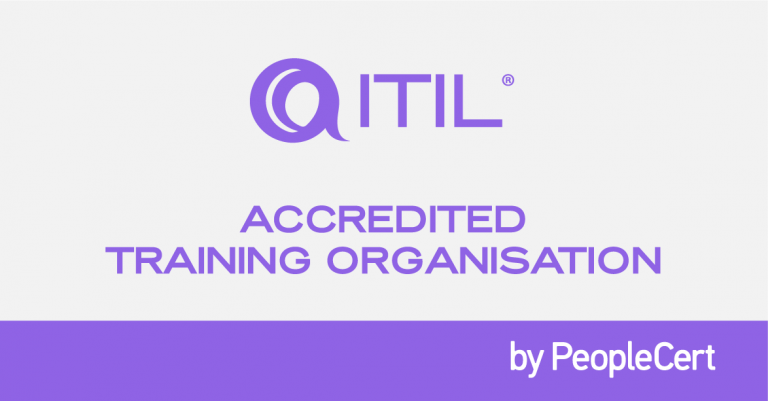
Introduction
Course duration: 3 days, 9am – 5pm
An instructor-led classroom training relevant for professionals on how to establish and manage relationships between service providers and consumer organisations, using strategic and practical best practice guidance to deliver return on investment and a holistic approach to service management.
- Understand The Key Concepts Of Business Relationship Management (BRM) • Identify the purpose, PSFs, and value of the BRM practice. • Understand the key challenges of BRM. • Understand the key stakeholders of service relationships. • Understand the service journey model including the steps and the role of touch-points and service interactions. • Understand the types of service relationship and the role of BRM in each type of service relationship
- Understand BRM Value Streams & Processes • Understand the ITIL® service value chain model and the roles and relationships of service value streams, practices, and processes in creation of value. • Understand the two main processes of the Business Relationship Management (BRM) practice, including their key inputs and outputs, activities and key questions. • Know how to develop and apply relationship models. • Know how to integrate BRM in the organisation’s value streams
- Know How To Apply BRM Models & Techniques • Know how to apply the following in the context of BRM, including stakeholder analysis and mapping, Gemba walk, and the voice of the customer.
- Understand BRM Roles, Skills & Organisational Solutions • Understand the key skills required for BRM. • Describe the responsibilities of the relationship manager and relationship agent roles. • Know how to apply the LACMT model to BRM activities. • Know how to position BRM within an organisational structure.
- Understand How Information & Technology Supports And Enables BRM • Identify the key inputs and outputs of the BRM practice. • Describe the key BRM automation tools and their role in the practice
- Understand The Role Of Partners & Suppliers In BRM • Understand the complexity of service relationships. • Understand the dependencies of BRM on third parties
- Know How To Develop The BRM Capability In An Organisation • Understand the key concepts of the ITIL maturity model, including capability assessment • Know how to apply capability criteria to plan BRM capability development • Identify key metrics and methods for improving BRM capabilities. • Apply the key steps of the BRM capability development
- Define Business Relationship Management roles, responsibilities, knowledge, and skills
- Ensure stakeholders understand the strategic and operational requirements to co-create value and achieve business goals
- Apply Business Relationship Management metrics and practice success factors to improve performance
- Measure, assess and develop Business Relationship Management capability by using the ITIL Maturity Model.
- 40 Multiple Choice Questions
- 1 mark per correct answer
- 26 marks required to pass (out of 40 available) – 65%
- 90 minutes duration
- Closed-book
There are no pre-course reading materials required for this course. A good grasp of ITIL4 concepts is advantageous.
PeopleCert’s Continuous Professional Development Programme
All participants with PeopleCert Global Best Practise certification can renew (within 3 years of their original certification dates) and keep your certification current through PeopleCert Continuous Development Programme.
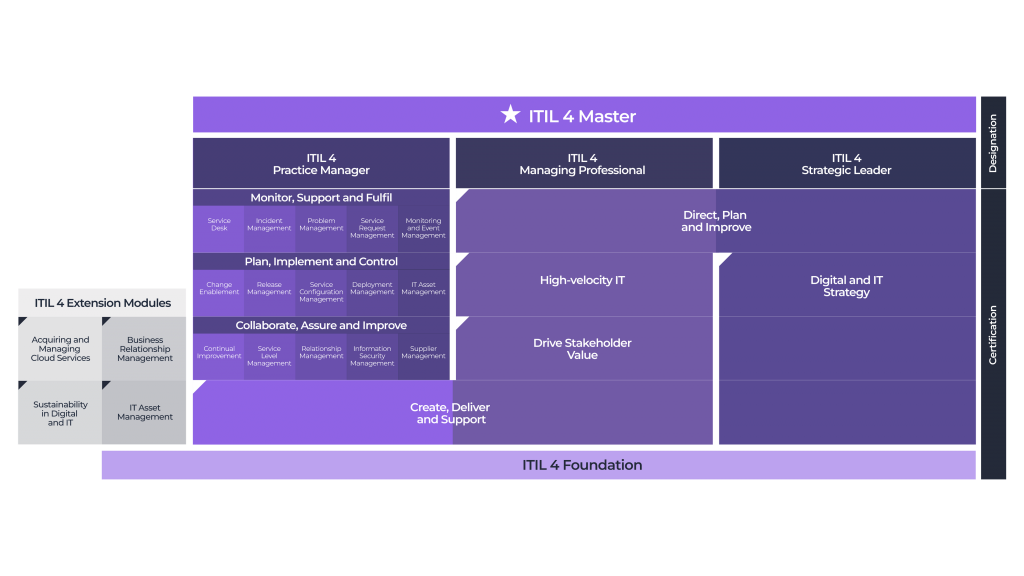
ITIL 4 Master: The Pinnacle of ITIL Achievement
Embark on your ITIL Master Certification journey with Sapience, our expert trainers will guide you through the entire ITIL 4 framework, equipping you with the skills to achieve this prestigious designation. The ITIL 4 Master designation offers a wealth of benefits, including career advancement, proven expertise, differentiation, and leadership recognition. Ready to embark on this rewarding journey? Contact us to learn more about our ITIL 4 Master preparation programmes.
Why Us?
Complimentary refresher
Participants can attend a complimentary refresher if they wish(1-year validity and subject to approval)
Post-training support
Should you have questions after the course, you may contact the trainer for assistance regarding course material
E-learning Portal Access
1 year access to our E-learning portal. Including: - E-books available for download - Official sample exam - Randomised quiz formulated by Sapience Trainers based on past examinations
Meet Your Trainers
Senior Consultant
Sapience Consulting
Senior Consultant
Sapience Consulting
Principal Consultant
Sapience Consulting
Principal Consultant
Sapience Consulting




